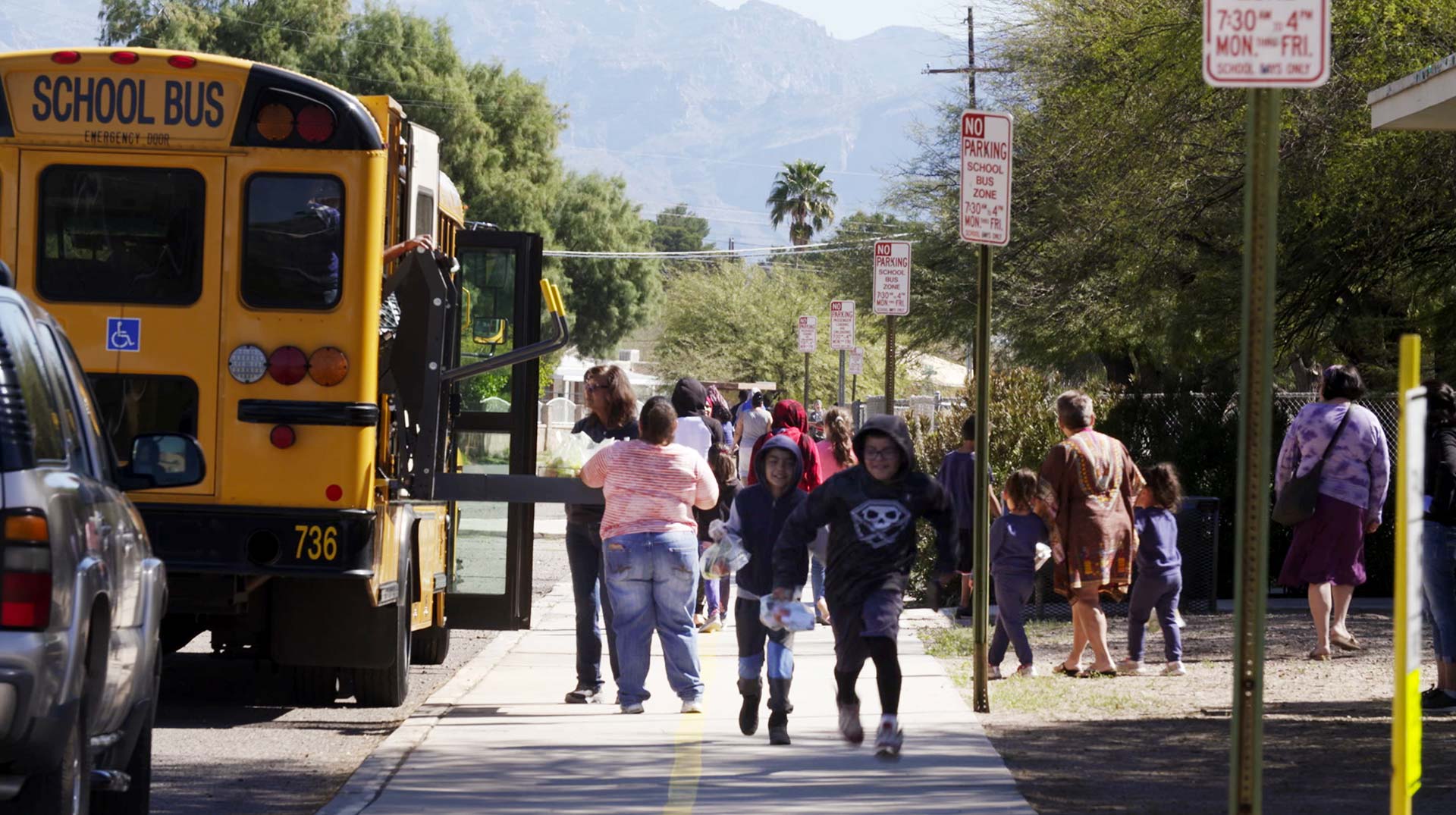 Students and families receive packaged meals from Tucson Unified School District workers who are distributing meals along the district's bus routes during closures associated with the COVID-19 pandemic.
Students and families receive packaged meals from Tucson Unified School District workers who are distributing meals along the district's bus routes during closures associated with the COVID-19 pandemic.
TUSD is the only school district in Tucson that does not already have a voter-approved override to help fund staffing needs.
Board member Ravi Shah spoke at Tuesday’s board meeting.
“I really appreciate this opportunity to really try to show value to the work that is being done in our district by addressing compensation, with over a third of the $45 million proposed going towards compensation for our teachers and staff, and then, of course, continuing these programs and services,” he said.
The school district is currently projected to have a structural deficit of $20 million through fiscal year 2030.
“If this override doesn't pass, we'll be working a year from now on approving a budget that is complete opposite, that is cutting services and programs, that is limiting staff salaries and benefits, and doing so many other things that we know is going to harm the 40,000 kids in our community,” Shah said. “And this override allows us to do these things, address some of our budget deficits in a fiscally responsible way.”
The 15% override would be available for 7 years, reducing during the last two, and would need another voter approval to continue the funding source.
Four board members approved sending the override to voters, but Val Romero abstained from voting.
“So this isn’t just a bandaid, but this is kind of a permanent thing we're asking the voters to do, because if you want to maintain these things throughout, we can't just stop, have it after the first one is going to have to continue and continue and continue on,” Romero said. “So I understand all the great things that it’s going to accomplish. I don't have the same optimism that my colleagues have.”
He said he’s gotten feedback from the public that some feel like an override would be asking the public to bail the district out of its financial problems.
Shah responded that the money is needed because the state budget funding public schools has not kept up with inflation.
The override money would fund:
- $16.8 million for employee raises
- $6.6 million to expand reading and math interventionists at all schools without them
- $4.6 million to maintain and expand Fine Arts to 14 additional schools
- $6.8 million for all current school counselors
- $1.6 million to decrease the school counselor-to-student ratio
- $1.5 million for social workers at all high schools
- $3 million to expand access to PE teachers
- $900,000 for credit-recovery expansion in high schools
- $197,000 to increase attendance through attendance liaison efforts
- $800,000 to expand full-day Pre-K classrooms
- $1.1 million to increase Career and Technical Education programs

By submitting your comments, you hereby give AZPM the right to post your comments and potentially use them in any other form of media operated by this institution.